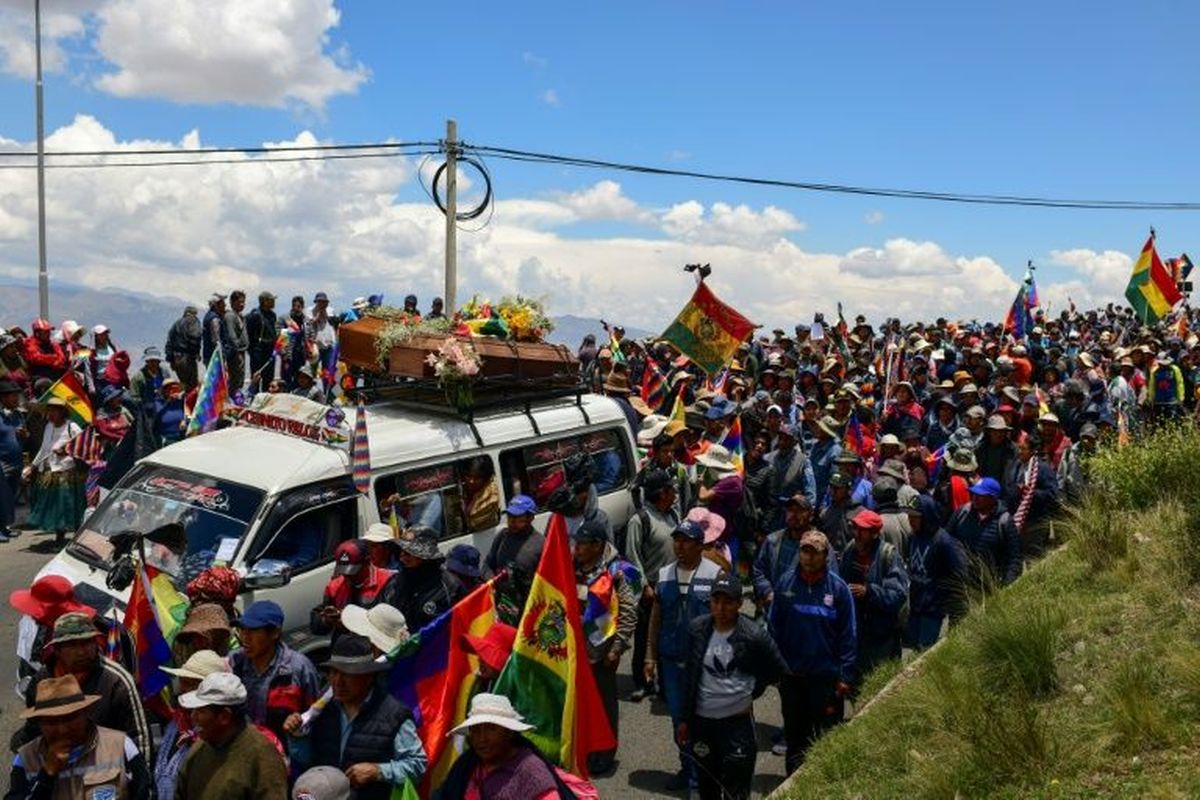USAID row: Congress slams BJP, demands white paper
The grand old party also said that the “white paper” should not only focus on USAID funding, but all such agencies which fund both Governments, individuals and all other entities under Indian law.
The protesters marched on San Francisco Square, where scores of heavily armed police and soldiers had blocked streets near Congress, demanding “justice” and the resignation of interim president Jeanine Anez.

A funeral procession for five supporters of Bolivia's ex-president Evo Morales, killed when security forces lifted a siege on a fuel plant (Photo: IANS)
Bolivian riot police on Thursday tear-gassed angry protesters who taunted them as “murderers” while parading with the coffins of five people killed in clashes with security forces, as Congress debated when to hold new elections.
On Tuesday, lawmakers convened as thousands waving the multicoloured indigenous flag walked some nine miles (15 kilometres) from El Alto to the seat of government in La Paz, in a funeral procession for five of the eight people killed in a stand-off with security forces near a key fuel plant.
Advertisement
The protesters marched on San Francisco Square, where scores of heavily armed police and soldiers had blocked streets near Congress, demanding “justice” and the resignation of interim president Jeanine Anez.
Advertisement
Senate President Eva Copa, a member of Morales’s Movement for Socialism party, urged “the armed forces and the police to let our dead rest in peace… it’s not fair that they launch this type of gas on people carrying caskets.”
Anez has called on lawmakers to lay the ground for new elections as authorities struggle to quell weeks of unrest that erupted after the disputed October 20 ballot.
Thursday’s violence follows deadly clashes on Tuesday when security forces lifted a week-old blockade on the Senkata plant near El Alto, amid growing fuel and food shortages in La Paz.
During a press briefing on Wednesday, Jeanine Anez said that the aim of her proposed legislation is to ensure a “transparent” electoral process leading to a result which is “respected”.
The violence came as Bolivia’s interim president, Jeanine Áñez, said Morales would face possible legal charges for election fraud if he returned home, even as the ousted leader contended he is still president, despite resigning after massive protests against him.
Morales entered politics after years as the leader of the coca growers union in the Chapare region of Cochabamba province, where support for Bolivia’s first indigenous president remains strong.
Morales was declared the winner of the October 20 presidential election with a narrow margin, giving him a controversial fourth term, having first taken power in 2006.
The United States and Brazil, among others, have recognized Anez as interim president, while many in the international community have limited their response to calling for dialogue while declining to take sides.
Advertisement